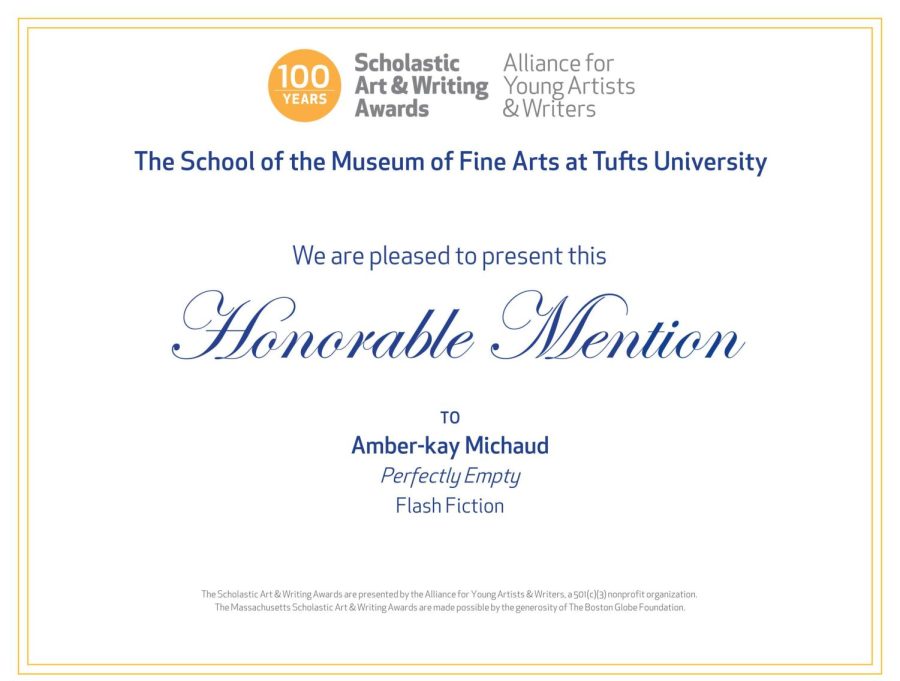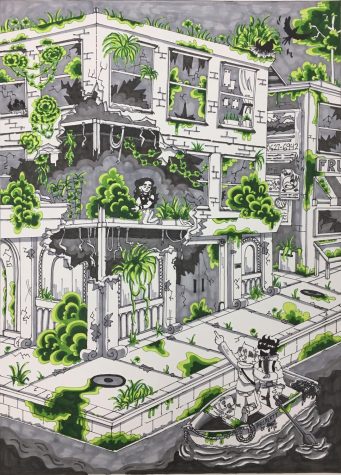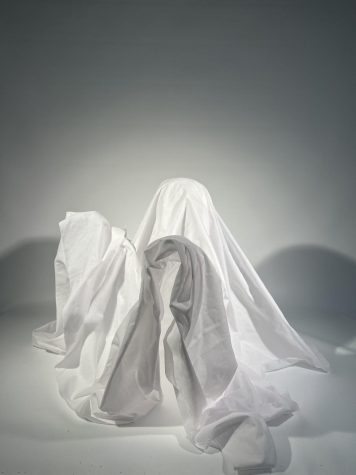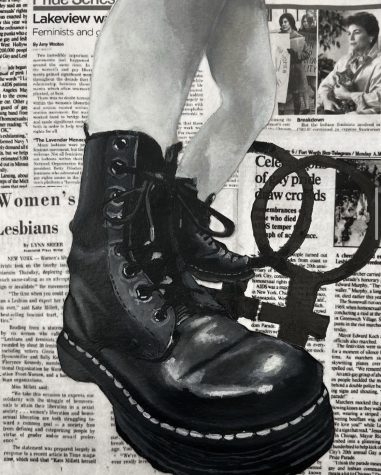Perfectly Empty
Perfectly Empty
Amber Kay Michaud
White walls.
A white box.
That was all it was now, or how it felt anyway.
The posters were gone, the lights had been taken down, all the little spiders that had lived in the corners by the ceiling had been smeared over with paint, encased in an acrylic tomb.
She didn’t want to move; she wanted to stay home. But at this point, home was beginning to feel like it wasn’t really home anymore.
Most of her furniture had been hauled off into moving vans and sent away, and her belongings had been haphazardly shoved into an assortment of boxes, which were strewn around the floor. Her bed was currently situated in an uncomfortable, diagonal angle— moved around so her mother could paint every blemish from the walls.
The white box, which she was forced to toil away in, was beginning to feel suffocating.
It felt so blank. So empty, and yet at the same time it was crushing down on her, taunting her, “This home isn’t yours anymore. It’s all gone.”
White. Pristine white.
Perfect. No chipped buttery cream walls, no taped-up posters of nerdy book series and cut-out taped-up doodles, no messy handprints or colored smears from art projects gone awry.
White. Isolating white.
Perfect white.
It was perfect because that way other people would want to buy it.
Her parents didn’t seem bothered at all; they kept showing her online photos of picture-perfect houses and going on and on about how much better life would be somewhere else, where she would have a new, better room, and new, better friends. There would be better jobs there, they told her, and lots of new things to do. They promised her that this was a good thing, because now there would be more money, and there would be more space, and there would be more time they could have together as a family; she knew promises like these never held true.
She just wanted to stay.
She wanted back her chipped buttery cream walls, and nerdy posters, and boring, unchanging life. She didn’t care that she lived in a small town, or that her family didn’t always have the money for everything they wanted. Life had been fine here, it had been good.
The paint had dried by now, but to her, it felt as though it were drowning the room— a sickly, dripping substance that was melting down from the ceiling, digging all of its perfect claws into her eyes and burning her cheeks— or maybe the burning was tears.
All at once, every memory, every little piece of her childhood was being washed away, and she couldn’t do anything to stop it.
Silently, she put her last remaining items, the last few pieces of herself, into a cardboard box— a small stack of old sketchbooks, a blue star-projector that had been long abandoned to the purgatory of what had been the labyrinth beneath her bed, and a small stuffed cat; it had been a gift from her best friend in second grade. Neither really talked to each other anymore, but she couldn’t help but hurt at the thought of moving so far away from her— so far away from everything they’d done together.
She slowly taped the box closed, the duct tape roll whining as she stretched it, as though it too was begging to let the world stay the same.
She brought the last of the boxes out into the living room, a cluttered mess of paint buckets and boxes and emptied furniture, and set them down on the top of the stack, where her father would soon come to carry them out to the moving truck waiting hungrily in the driveway, eager to swallow up every last drop of sentiment she had left.
At the moment, she wanted more than anything to escape— go for a walk or call her friends… but even now she felt tied to the house, with all but the tiling on the floors stripped away.
Her mother wandered through the kitchen, lugging a large bag of old clothing, and turned to give her daughter a smiling glance.
“Oh, cheer up. We’ve almost got it all packed up, we’ll be in our new home in no time!”
She didn’t have the strength to force a smile for her.
“Think of it as a fresh new start. A clean slate… hey, there’s a pile of documents on the counter that should have all of your information and passport and everything— I’ve got to finish packing, could you check it over and make sure everything’s there?” She quickly carried herself out the door, abandoning her child to grieve within the jungle of household fragments.
She flipped idly through the stack on the kitchen counter.
Passport: Check.
Medical records: Check.
Social Security number: Check.
She found her birth certificate and wandered her eyes over its aged, weathered surface, trying to make out the words; the paper had faded to white.
Perfect white.
With a heavyweight in her chest, she put the pile back together neatly on the counter. She gave a final, longing look at the boxes she had placed by the door, what had once been pieces of the town itself now locked away inside to be shipped away forever.
This place, these memories, this life— wasn’t hers anymore.
Mournfully, she walked to her room, and shut herself into the horrible, empty, perfect white cage.







